
Learn Shona for travelers

Speaking a bit of the language of the country you are travelling to is always a good idea. Locals will appreciate the effort and will respond positively. So far, I have learned a bit of isiXhosa (one of the 11 official languages in South Africa) and Chichewa (most spoken language in Malawi). Shona is the most spoken language in Zimbabwe, a country in Southern Africa. There are around 9 other languages besides Shona but everyone understands Shona.
So far I have only been to Victoria Falls in Zimbabwe but most of my friends in South Africa are Zimbabweans that’s why I was super keen to learn Shona in order to be prepared when I finally travel more of Zimbabwe. I put together a list of basic words and phrases that will help you to learn Shona too. Also check out my video that I did with my Zimbabwean friend Sidney. It will help you with the pronunciation. You can find it at the bottom of this post.
Common Shona Phrases – Spoken like a local
Hi/ Hello
- Wakadii (used for one person of same age or younger than you)
- Makadii (used for more than one person or to respect older people)
Good morning!
- Wamuka sei! (used for one person of same age or younger than you)
- Mamuka sei! (used for more than one person or to respect older people)
Read next: My road trip in South Africa
Good night sleep nice!
- Urare zvakanaka! (used for one person of same age or younger than you)
- Murare zvakanaka! (used for more than one person or to respect older people)
- Urare bho! (slang – used for one person of same age or younger than you)
- Murare bho! (slang – used for more than one person or to respect older people)
How are you?
- Wakadii hako? (used for one person of same age or younger than you)
- Makadii henyu? (used for more than one person or to respect older people)
- Zvirisei? (slang – used within the younger generation: How are things?)
Read next: 15 Things you need to know before traveling to Mozambique
I am fine and you?
- Ndakasimba ko iwewe? (used for one person of same age or younger than you)
- Ndakasimba ko imimi? (used for more than one person or to respect older people)
- Ndiri bho ko iwewe? (slang – used within the younger generation : I am good. What about you!)
What is your name?
- Unonzi ani? (used for one person of same age or younger than you)
- Munonzi ani? (used for more than one person or to respect older people)
- Munonzi vana-ani? (used for more than one person)
My name is…..!
- Ndinonzi ….!
Thank you very much!
- Ndinotenda!
Read next: 20 Things to know before traveling Kenya
May I have a beer please!
- Ndipewo doro!
May I please have some food!
- Ndipewo chikafu! (used for one person of same age or younger than you)
- Ndipeiwo chikafu! (used for more than one person or to respect older people)
Yes!
- Hongu! (formal)
- Ehe! (slang)
No!
- Kwete! (formal)
- Aiwa! (slang)
I am sorry!
- Ndine hurombo!
Are you keen to travel Africa? Here you can design your own trip:
Goodbye!
- Toonana!
- Ndokubata! (slang – used within the younger generation)
Where is the toilet?
- Chimbuzi chiripi?
I love you!
- Ndinokuda! (used for one person of same age or younger than you)
- Ndinokudai! (used for more than one person or to respect older people)
I love you too!
- Ndinokuda neniwo! (used for one person of same age or younger than you)
Read next: My Ultimate Malawi /Africa Guide
Do you speak English?
- Unotaura chirungu here? (used for one person of same age or younger than you)
- Munotaura chirungu here? (used for more than one person or to respect older people)
Is there someone here who speaks English?
- Pane anotaura chirungu here?
How much is it?
- Imarii?
I need help!
- Ndinodawo rubatsiro!
I don´t know!
- Handizive!
Read next: From Windhoek Namibia to Victoria Falls Zimbabwe
White person/people
(Just for people to know once they hear the words)
- murungu (one white person)
- varungu (more than one white person)
Counting in shona
- 1 – poshi
- 2 – piri
- 3 – tatu
- 4 – ina
- 5 – shanu
Learn Shona – for the pronunciation check out my video with my Zimbabwean friend Sydney:
Have you ever learned a bit of the local language before traveling to a country? Let me know in the comments!
Don´t forget to pin my post:
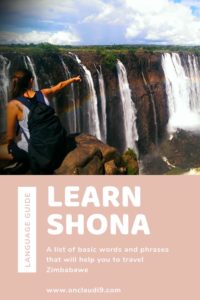
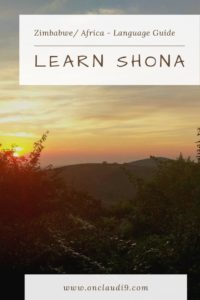
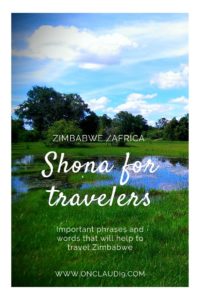
[Disclaimer: This blog post contains some affiliate links. Once you purchase something, I may earn a small commission at no extra cost to you. This tiny commission will help support my blog hosting and other maintenance costs. All my opinions are my own and were not influenced in any way. Thank you!]

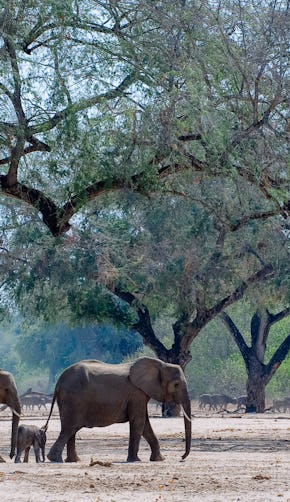
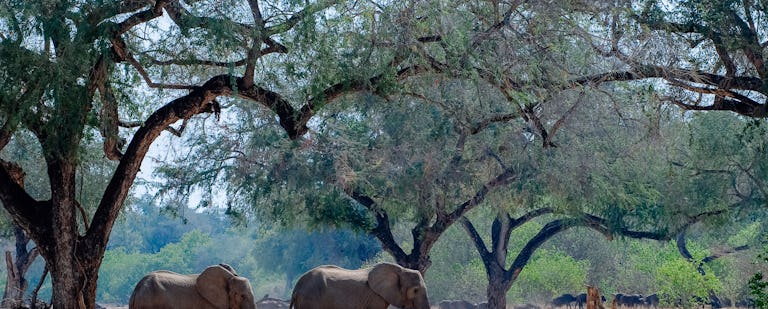

No Comments